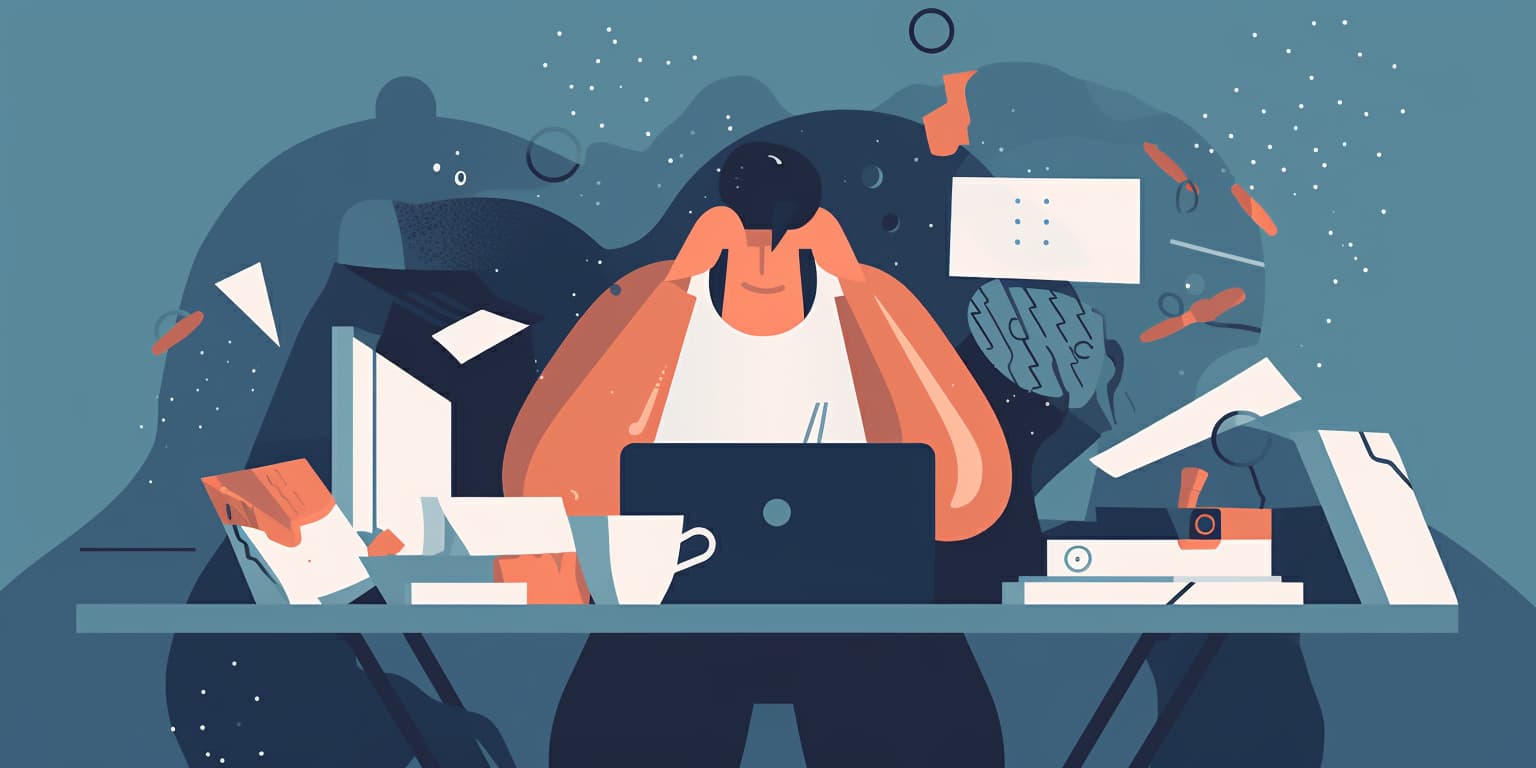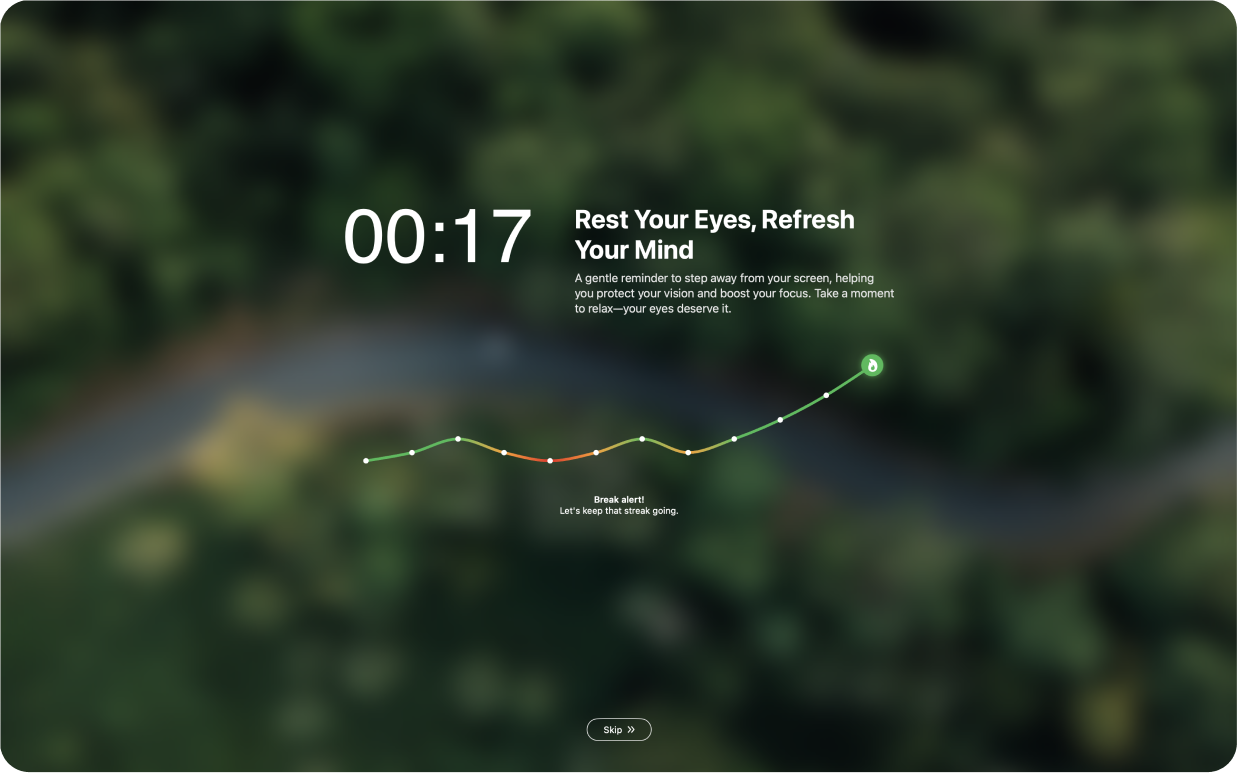
The Hidden Cost of Skipping Breaks: What It's Really Doing to Your Career
You're at your desk, powering through another long day. Lunch break? Who has time for that? You'll just grab a quick snack and keep working. After all, your to-do list isn't getting any shorter.
Sound familiar? If so, you're not alone. In our always-on work culture, taking breaks has become almost taboo. We wear our busyness like a badge of honour, equating non-stop work with productivity and success.
But here's the uncomfortable truth: Skipping breaks isn't just bad for your health — it's sabotaging your career.
The Myth of Constant Productivity
Let's bust a common myth: Working longer hours does not equal getting more done. Extensive evidence has shown that our brains aren't wired for sustained focus over long periods.
Experts in productivity and cognitive science have consistently found that brief diversions from a task can dramatically improve one's ability to focus on that task for prolonged periods. In other words, taking breaks makes you more productive, not less.
But it goes deeper than just productivity. By skipping breaks, you're:
- 1.
Stunting your creativity
- 2.
Hampering your decision-making abilities
- 3.
Increasing your risk of burnout
- 4.
Missing out on valuable networking opportunities
Let's break these down one by one.
Your Creativity is Suffering
Ever notice how your best ideas often come when you're not actively trying to think of them? There's a reason for that.
When we step away from work and let our minds wander, we activate what neuroscientists call the “default mode network“ — a set of brain regions associated with creativity and insight.
Constantly staying “on task“ inhibits your brain's ability to make novel connections and develop innovative solutions. Those breakthrough ideas that could advance your career? They're much more likely to come during a relaxed walk than staring at your screen for the 10th hour straight.
Your Decision-Making is Compromised
Decision fatigue is accurate, costing you more than you realize. As the day wears on and you make decisions after decisions without adequate breaks, the quality of those decisions deteriorates.
In your career, this could manifest as choosing the safe, unimaginative option in a critical project or saying “no“ to an opportunity that could have led to advancement — simply because you're too mentally depleted to evaluate it properly.
You're on a Fast Track to Burnout
Burnout isn't just about feeling tired. It's a state of chronic stress that leads to:
- Physical and emotional exhaustion
- Cynicism and detachment
- Feelings of ineffectiveness and lack of accomplishment
Engagement isn't just a feel-good metric — it's directly linked to higher productivity, better customer ratings, and increased profitability.
By skipping breaks to be more productive, you're ironically setting yourself up for decreased engagement and effectiveness in the long run.
Why Should You Care?
While digital eye strain is usually temporary, ignoring it can lead to decreased productivity, increased discomfort, and potentially long-term vision problems. Plus, who wants to deal with constant headaches and irritated eyes?
Missed Networking Opportunities

In many workplaces, some of the most valuable relationship-building happens during breaks. Whether chatting with colleagues in the break room or joining impromptu lunch outings, these informal interactions build the social capital crucial for career advancement.
Breaking the No-Break Cycle
So, how do we break free from this counterproductive habit? Here are some strategies to start incorporating meaningful breaks into your workday:
- 1.
Schedule breaks like meetings: Block out time in your calendar for breaks, and treat them as non-negotiable appointments with yourself.
- 2.
Use the Pomodoro Technique: Work in focused 25-minute intervals, followed by 5-minute breaks. After four 'pomodoros,' take a more extended 15-30 minute break.
- 3.
Take a proper lunch break: Step away from your desk, even if it's just for 20 minutes. Eat mindfully without scrolling through your phone.
- 4.
Try micro-breaks: Even 30 seconds of deep breathing or stretching can help reset your focus.
- 5.
Get outside: Walking around the block can improve your mental state and creativity.
Remember, taking breaks isn't a sign of weakness or lack of dedication. It's a strategic approach to maintaining peak performance and advancing your career over the long term.
The next time you're tempted to power through without a break, ask yourself: Can you afford the hidden costs of that decision? Your future self and career will thank you for prioritizing regular, rejuvenating breaks.
If you'll excuse me, I think it's time for a walk. Care to join?
Elevate Your Workday with DeskRest
Experience a transformative approach to your daily work routine. DeskRest seamlessly integrates into your workflow, offering intelligent break reminders, posture alerts, and focus-enhancing tools. Boost your productivity, protect your well-being, and enjoy a more balanced work life.
